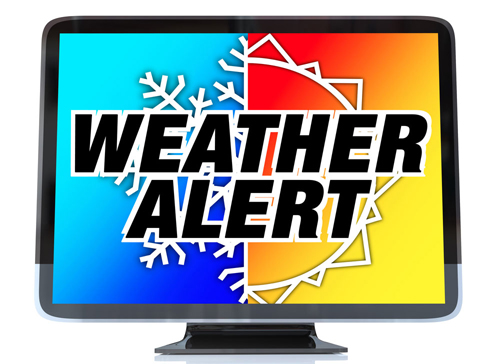Hurricane Sandy sent us a potent reminder of the need to ensure that information about emergencies is available to people with vision loss. Television has become the most common way to distribute information about weather or other emergencies, including notices regarding evacuation. Unfortunately, people who are blind or visually impaired are unable to read the scrolling information that often appears on television screens during an emergency, so they do not have efficient access to information about closures, evacuations or other pertinent local emergency information. As we prepare for winter weather, we again must worry about ensuring that people with vision loss are made aware of specific local emergency information.
Thanks to the advocacy efforts of the American Foundation for the Blind (AFB) this regrettable and dangerous situation will soon change. Because of our work, a law was passed in 2010 called the Communications and Video Accessibility Act and it requires that emergency information provided via television be made accessible to people with vision loss.
The Federal Communications Commission (FCC), the government agency responsible for setting the rules for how this will be done, has begun the process and has until next April to complete its work. AFB is providing input to the FCC and will also work with broadcast and cable television to ensure that people with vision loss can access emergency information provided via television.
Now the FCC is asking the public to weigh in on their proposals to make accessible emergency information a reality.
Unfortunately, the FCC is also proposing an idea that many in the consumer electronics industry might like, but which would be harmful to people with disabilities (if adopted). They are proposing to allow industry groups to seek waivers from the accessibility requirements of the law for devices that are multi-purpose, i.e. a device which displays or records video programming as well as performs some other function, such as gaming, stereo home theater, or even basic home appliance functions. Why, some industry groups may ask, should a specialized television, with additional features built in, need to comply with the law's emergency information access requirements?
Our answer is simple: where emergency information is concerned, a TV is a TV, regardless of what else the device can do or wherever it may be incorporated. With more and more devices providing multiple functions, and far too many people with disabilities needing to conserve precious financial resources given the high jobless and poverty rates, people with disabilities should have the same right as non-disabled consumers to get the most functionality for their dollar while knowing that they will be fully informed in the event of an emergency. People with disabilities do not deserve second class choices.
Let the FCC know that you reject the proposal to allow waivers for multi-purpose/multi-function devices. Send a quick email to the FCC's Disability Rights Office at dro@fcc.gov.
Here is a sample message you can tweak to your liking:
I hear the FCC is considering rules to make emergency information more accessible to people with vision loss, but I also hear that the FCC is considering allowing waivers for devices with multiple purposes/functions beyond just video programming. Please do not permit such waivers. Accessible information for people with vision loss during a crisis is absolutely critical; we must not allow industry to compromise the safety of people with disabilities by permitting them to cut corners. Thank you.
Be sure to include your name and address in any email you send, and consider copying AFB on your response, afbgov@afb.net. Thank you for your advocacy.
"Weather Alert" television photo courtesy of Shutterstock.
